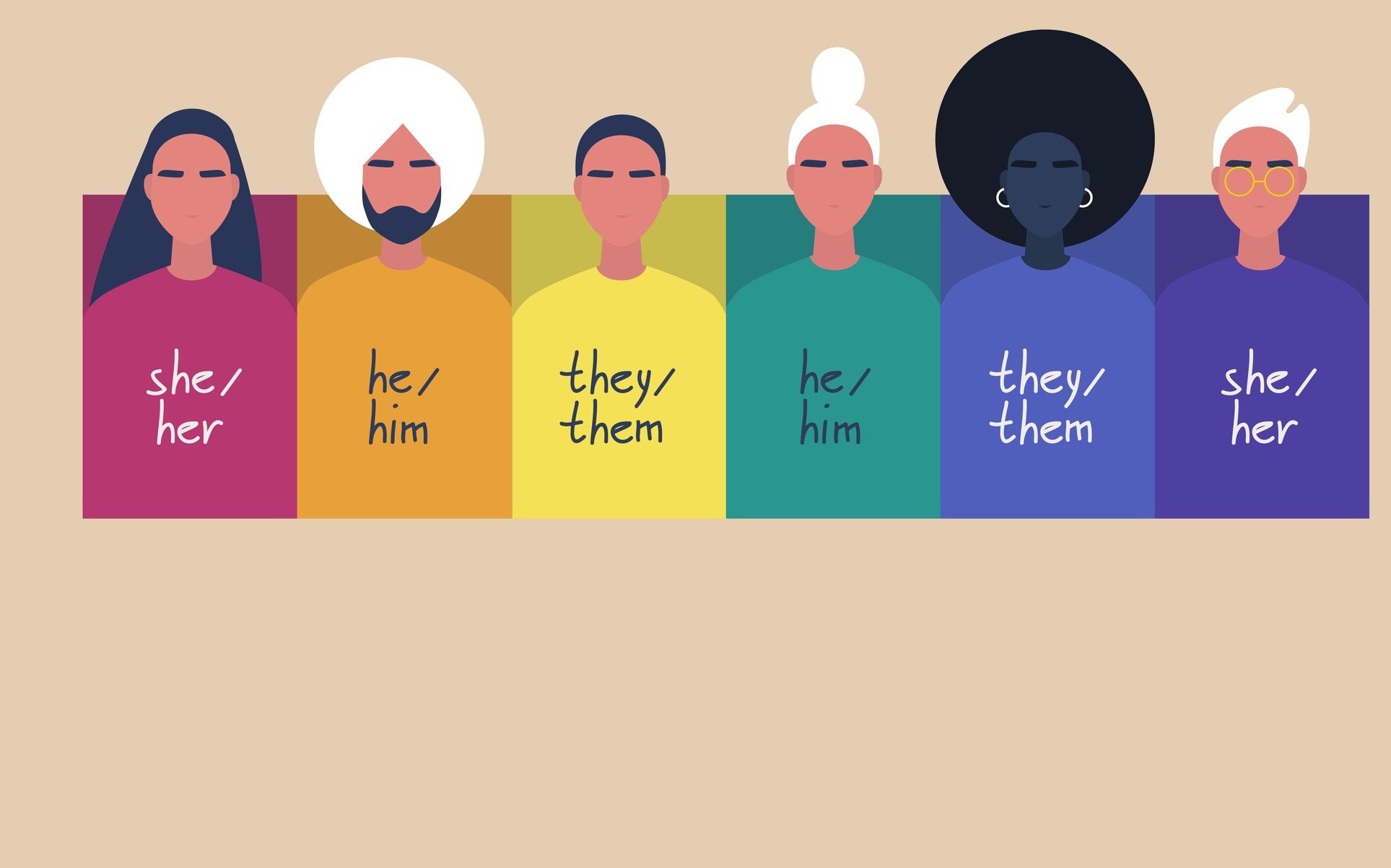
It’s no secret that the quality of your friendships has a profound impact on your overall well-being. From influencing your stress levels and physical health to shaping how you cope with life’s challenges, the connections we nurture play a crucial role in our daily lives. While good friendships can bring immense positivity, support, and joy, those marked by constant ups and downs can significantly strain your stress levels and health, leaving you feeling depleted rather than uplifted.
Often, when you’ve shared a long history with someone, there can be a deep-seated feeling of obligation to maintain that friendship, even if a growing discomfort or a misalignment of values starts to emerge. This can be a particularly tricky emotional landscape to navigate because, unlike romantic relationships, there isn’t a widely accepted ‘protocol’ for ending a friendship. A friendship breakup can catch you off guard, feeling like something you never anticipated until it happens.
If you’ve been grappling with unease, sensing that something in your friendship dynamic isn’t quite right, or if you’re uncertain about whether it’s time to re-evaluate a connection, you’re not alone. Recognizing the subtle — and sometimes not-so-subtle — indicators that a friendship has turned toxic is the first step toward reclaiming your peace and prioritizing your mental health. Let’s explore some key signs that might suggest your friendship is no longer serving you.
1. **Your core values differ and it’s noticeable enough that you have grown apart and don’t feel that you have much in common anymore.**
Life is a journey of constant evolution, and it’s perfectly natural for individuals to grow and change over time. Your life may naturally steer in a different direction than your friend’s, and while some friendships possess the resilience to weather these shifts, others may find themselves gradually drifting apart. This isn’t necessarily a failure on anyone’s part, but simply a consequence of personal growth and divergent paths.
However, when these differences extend to your core values – the fundamental beliefs and principles that guide your life – and they become so pronounced that you consciously notice a growing chasm between you and your friend, it can signal a deeper issue. It moves beyond just having different interests; it speaks to a fundamental misalignment in what you both deem important, ethical, or meaningful in life. This divergence can make shared experiences feel less fulfilling and conversations less resonant.
This isn’t about judging your friend’s values, but rather acknowledging how their perspective might clash with yours, creating subtle or even overt friction. You might find yourselves disagreeing on significant matters, or simply feeling a lack of understanding or empathy from their side on issues that truly matter to you. The conversations might become superficial, avoiding topics where your differing values would inevitably surface, leading to a sense of emotional distance.
If you frequently notice these significant differences and find that you no longer have much common ground for meaningful connection, it may be a crucial time for self-reflection. Ask yourself about the true role this friendship currently plays in your life. Is it still a source of genuine connection and understanding, or has it become a relationship you maintain out of habit, convenience, or a sense of obligation, despite a noticeable void in shared purpose or perspective?

2. **You are the only one making an effort to maintain the friendship.**A truly thriving friendship, much like any healthy relationship, operates on a principle of reciprocity. It requires the sustained effort and energy of both individuals to keep the connection alive and flourishing. When this delicate balance is disrupted, and you find yourself consistently being the sole initiator of contact, the planner of outings, or the one reaching out during difficult times, the friendship begins to feel profoundly lopsided.
Over time, this imbalance in effort can quietly, but powerfully, breed resentment. You might start to feel like an emotional caretaker, constantly investing your energy into a relationship where your contributions are not being met with equal enthusiasm or initiation. This can lead to questions about your value in the friendship and whether your presence is truly appreciated, or merely expected without mutual investment.
This isn’t to say that effort will always be perfectly 50/50 – life happens, and sometimes one friend might need more support or be less available. However, a consistent pattern where one person carries the entire weight of maintenance is a significant red flag. It’s draining to continuously chase a connection, to be the only one checking in, making plans, or trying to bridge gaps in communication.
If you find yourself frequently asking, ‘Do they even care?’ or ‘Why am I always the one?’, it’s a clear signal that the reciprocal nature of your bond may have eroded. A friendship should feel like a mutual exchange of care, connection, and energy, not a one-sided endeavor that leaves you feeling exhausted and undervalued. Reflecting on whether the effort you put in is genuinely matched, even in different forms, is essential for a healthy relationship.
Read more about: You Won’t Believe These 10 Iconic On-Screen Couples Who Couldn’t Stand Each Other in Real Life!

3. **You typically feel drained after spending time with them.**One of the most immediate and telling indicators of a toxic friendship is the emotional residue it leaves behind. Pay close attention to how you feel not just during, but especially after, interactions with your friend. Do you walk away feeling energized, uplifted, or at least content? Or do you frequently notice a pervasive sense of exhaustion, depletion, or even a heavy emotional weight settling over you?
This ‘drained’ feeling isn’t just about physical tiredness; it’s a deep emotional and mental fatigue that often signifies that the friendship is taking more from you than it gives. It might manifest as a feeling of needing to ‘recover’ after spending time with them, as if you’ve just run an emotional marathon. This could stem from constantly having to manage their negativity, being subjected to endless complaining, feeling unheard, or having your own struggles minimized.
If this feeling is a frequent occurrence, it’s a powerful sign that the dynamic within the friendship is unhealthy. Healthy relationships should generally leave you feeling supported, understood, or at least neutral, rather than consistently zapping your vitality. Your emotional well-being is precious, and consistently sacrificing it for a friendship can have long-term detrimental effects on your mental health.
Take some time to reflect specifically on what aspects of your interactions with this friend are causing you to feel drained. Is it their constant need for attention? Their incessant criticisms? Their inability to celebrate your successes? Identifying the specific triggers can offer crucial insight. Understanding this pattern is vital, because recognizing that you frequently feel drained is an urgent invitation to re-evaluate the true cost of maintaining this connection.
Read more about: Honest Question: What Gives? 12 Once-Popular American Eats Nobody Touches Now

4. **When you ask yourself why you’re maintaining this friendship, you can’t come up with a reason why.**
Sometimes, friendships can persist out of sheer inertia, comfort, or a sense of shared history, long after the genuine connection has faded. You might find yourself going through the motions, meeting up, or exchanging messages, but when you pause to honestly interrogate the ‘why’ behind it all, your mind draws a blank. This isn’t a fleeting thought, but a recurring question that arises during moments of introspection.
If you’re reflecting on the actual role a friendship plays in your current life and you genuinely struggle to articulate a compelling reason for its continuation, it’s a significant indicator. This difficulty usually signals a profound emotional disconnection from this friend, or that you’re primarily driven by a sense of obligation rather than genuine desire or mutual benefit. The ‘shoulds’ of friendship might be outweighing the ‘wants’.
You might feel a lingering guilt about ending a long-standing friendship, or fear the awkwardness of a ‘friendship breakup,’ even if the relationship itself no longer brings you joy or support. This sense of obligation can be a powerful, invisible chain, preventing you from moving towards connections that are genuinely nourishing. The absence of a clear, positive reason for maintaining the bond often means its foundational purpose has been lost.
This kind of reflection is incredibly important for your personal growth and the cultivation of truly supportive relationships. If you’re maintaining a friendship out of habit or obligation, rather than genuine connection and shared purpose, it’s likely taking up valuable emotional and temporal space that could be dedicated to more fulfilling interactions. Acknowledge this feeling of disconnection; it’s a potent messenger telling you to reassess.
5. **They don’t respect your boundaries.**Boundaries are the invisible lines we draw to protect our emotional, mental, and sometimes physical space. In any healthy relationship, the clear communication and mutual respect for these boundaries are non-negotiable. When a friend consistently disregards or attempts to push past the limits you’ve clearly articulated, it’s a powerful sign of disrespect and a fundamental flaw in the friendship dynamic.
Pay very close attention to how your friend reacts when you express a preference, a limit, or a boundary. Do they genuinely hear you and adjust their behavior? Or do they try to convince you to change your mind, dismiss your feelings, or outright disregard your wishes? This type of behavior undermines your autonomy and signals a lack of regard for your needs and comfort, transforming the friendship into a one-sided power dynamic.
Examples of boundary-pushing can vary, but they all share a common thread of disrespect. Perhaps your friend expects to be invited to every single social event you attend, regardless of your personal preferences for specific gatherings. Or they might become openly jealous or resentful if you spend time with other friends, trying to control your social circle. Another common scenario involves them trying to persuade you to drink more or stay out later when you’ve already clearly expressed your desire to go home or abstain.
When a friend continually disrespects your boundaries, it creates an environment where you feel unheard, undervalued, and constantly on guard. You might find yourself avoiding expressing your needs altogether to prevent conflict, which erodes authenticity in the friendship. A healthy friendship is built on mutual respect, and that unequivocally includes honoring each other’s boundaries, making this an undeniable sign of toxicity.
Read more about: Beyond the Red Carpet: Nicole Kidman’s Unfiltered Confessions on Life, Love, and Reinvention After Her Split from Keith Urban

6. **You have started hiding things from them due to fear of judgment.**Authenticity is the bedrock of deep, meaningful friendships. We seek out friends who make us feel safe enough to be our true selves, sharing our triumphs, vulnerabilities, and even our mistakes without fear of harsh criticism or shaming. When this sense of emotional safety begins to erode, and you find yourself consciously withholding information or experiences from a friend, it’s a profound indicator that the dynamic in your friendship has shifted into an unhealthy territory.
This act of hiding is a self-protective mechanism, driven by the anticipation of judgment. It’s a stark contrast to a supportive friend who might offer ‘tough love’ out of genuine concern for your well-being. There’s a critical difference between a friend expressing a thoughtful concern about your decisions and one who is consistently judgmental, shaming, or critical in a way that makes you feel small or inadequate. The former comes from a place of care, the latter from a place of superiority or negativity.
If you frequently censor yourself, avoid sharing significant life updates, or hesitate to express your true feelings because you anticipate a negative, shaming, or belittling response, it means you no longer feel emotionally secure in their presence. This lack of safety prevents genuine intimacy and connection from flourishing, creating a superficial layer over what should be a bond of trust.
Constantly walking on eggshells, editing your life story for palatable consumption, or bracing yourself for criticism is an emotionally exhausting way to live. If you’ve expressed how their judgmental behavior makes you feel and nothing has changed, it’s time to seriously consider whether this friendship is truly sustainable or if it’s actively harming your ability to be authentic and confident in your own skin.

7. **You don’t feel good about yourself in their presence.**One of the most essential aspects of a healthy, supportive friendship is the ability to be your authentic self without reservation. Your friends should be people who see, accept, and even celebrate who you are, making you feel confident and valued. If you frequently find that you don’t feel accepted, or worse, if you consistently walk away from interactions with a particular friend feeling poorly about yourself, it’s a critical sign that the friendship dynamic is having a detrimental impact on your self-esteem and overall well-being.
This feeling might manifest in various ways: perhaps you feel perpetually criticized, or that your accomplishments are subtly diminished. You might sense a constant comparison or competition, leaving you feeling inadequate. Or maybe their negativity is so pervasive that it leaves you feeling down and questioning your own worth, as if their gloom has become contagious. A healthy friendship should uplift you, affirming your value, not chipping away at it.
It’s crucial to pause and consider what is happening within the friendship dynamic that contributes to these feelings. Are they making belittling comments, even under the guise of ‘jokes’? Do they consistently point out your flaws or insecurities? Do you feel like you have to perform or pretend to be someone you’re not to gain their approval? These are all behaviors that can erode your sense of self and leave you feeling less than whole.
If you can’t be your authentic self, or if their presence consistently leaves you feeling diminished, it’s a clear indication that the friendship is not serving your emotional health. You deserve relationships that nurture your spirit and reinforce your self-worth, allowing you to shine brightly, rather than connections that cast a shadow on your confidence and leave you questioning who you are.
Navigating the complexities of friendship requires not just recognizing when things go wrong, but also understanding the full spectrum of behaviors that can chip away at your happiness. As we continue our exploration of signs that a friendship has veered into toxic territory, remember that awareness is your first step toward reclaiming your peace and prioritizing your emotional health. These next signs, while sometimes subtle, are just as crucial in assessing the true nature of your bonds.
Read more about: From Cinematic Giants to Screen Stumbles: 14 Great Actors and Their Most Questionable Performances

8. **They’re a fair-weather friend.**It’s easy to revel in the camaraderie of friendship when life is smooth sailing and celebratory moments abound. But true friendships, the kind that genuinely nourish your soul, reveal their depth and resilience during the inevitable storms of life. A significant red flag that a friendship might be toxic is when you notice that your friend only seems to be present and available during your good times, or perhaps, only when they need something from you.
This pattern reveals itself when you’re going through a challenging period – be it a personal setback, a career disappointment, or a difficult emotional struggle – and your friend is conspicuously absent. They might not check in, offer support, or even acknowledge your struggles, leaving you feeling isolated and profoundly unsupported. Conversely, you might observe that their calls and messages become more frequent only when *they* are in need of a favor, a listening ear, or someone to commiserate with, creating a stark imbalance in the relationship’s give and take.
This ‘fair-weather’ dynamic can be incredibly disheartening, forcing you to question the sincerity and depth of the bond. A genuine friend stands by you, offering comfort and presence not just in the sunshine, but also through the rain. If you find yourself consistently providing emotional labor or practical help without receiving similar reciprocal care when you most need it, it’s a powerful indication that the friendship is not operating on a foundation of mutual support and genuine care.
Read more about: From Road Warriors to Garage Royalty: 12 Incredible Cars Engineered to Last a Lifetime (and Then Some!)

9. **You often feel that the friendship is competitive.**Friendships should be spaces of celebration, mutual encouragement, and shared joy, where each person genuinely roots for the other’s successes. However, if you frequently find yourself in a friendship where you feel like you’re constantly being ‘one-upped,’ or if your friend struggles to genuinely celebrate your achievements, it’s a significant indicator of a toxic dynamic. This competitive undercurrent can subtly erode the trust and intimacy that are vital for a healthy bond.
This competitiveness might manifest through backhanded compliments that leave you feeling more insulted than praised, or a tendency for them to subtly diminish your accomplishments. When you share good news, instead of genuine excitement, you might be met with a story about their own, perhaps greater, success, or a dismissive comment. This constant need to ‘win’ or be seen as superior creates a palpable strain, making it difficult to open up or trust them with your vulnerabilities.
Beyond direct competition, this sign often extends to how disagreements are handled. While disagreements are a natural part of any relationship, in an unhealthy, competitive friendship, these clashes can feel volatile and emotionally charged, rather than opportunities for respectful resolution. This can significantly impact your stress levels and make you wary of authentic communication, as you anticipate conflict being handled with aggression or a need to ‘be right’ rather than with understanding.
Ultimately, a friendship built on competition rather than collaboration drains your energy and leaves your guard perpetually up. You deserve connections where your successes are amplified, your struggles are met with empathy, and disagreements are approached with a spirit of mutual respect and a desire for resolution, not victory. If you’re constantly feeling like you’re in a contest, it’s time to re-evaluate the true value of that connection.
Recognizing these signs is a powerful first step, but what happens when you’ve identified the toxicity and realize a change is necessary? The journey of ending a toxic friendship, while challenging, is an act of profound self-care. It empowers you to create space for relationships that truly uplift and support you. Here are empathetic and actionable strategies to help you navigate this sensitive process with clarity and confidence.
Read more about: Beyond the Obvious: Unpacking the Hidden Psychological Barriers Keeping You Single, According to Experts

10. **Recognize the toxicity.**Before you can take any decisive action, the most crucial step is to fully and honestly acknowledge that the friendship is detrimental to your well-being. This isn’t about blaming or judging, but about a clear-eyed assessment of how the relationship truly makes you feel. It requires you to sit with your emotions, reflect on the patterns you’ve observed, and finally admit that this connection is not providing the support, respect, and positivity that you inherently deserve.
This recognition often involves revisiting the signs of toxicity we’ve discussed—from feeling drained to facing a lack of respect for your boundaries. Take time for self-reflection; consider how often you experience these negative impacts. It’s about truly understanding the emotional cost this friendship extracts from you, and how it might be hindering your personal growth or happiness. This internal validation is incredibly powerful, as it solidifies your resolve to seek a healthier path forward.
Admitting that a friendship, especially a long-standing one, is no longer serving you can feel like a profound betrayal or a failure. But it is, in fact, an act of courage and self-preservation. It’s about giving yourself permission to prioritize your mental health, accepting that some relationships have a natural lifespan, and empowering yourself to move toward connections that genuinely align with the person you are becoming. This foundational step is the bedrock upon which all subsequent actions will be built.
Read more about: A Contentious Chapter: Deconstructing Trump’s Domestic Terrorism Crackdown, Justice Department Actions, and the Evolving Media Narrative

11. **Set firm boundaries.**Once you’ve recognized the toxicity, the next vital step is to establish and communicate firm boundaries. Boundaries are not about controlling your friend, but about protecting your own emotional and mental space. This process can be a powerful litmus test, helping you determine if the friendship can be salvaged with healthier dynamics, or if it’s fundamentally harmful to your well-being, indicating a need to distance yourself entirely.
When communicating these boundaries, clarity and directness are key. Choose a calm moment to express your needs, focusing on “I” statements to convey your feelings without accusatory language. For instance, if you find their constant complaining overwhelming, you might say, “I need to focus on positive things right now, so let’s try to keep our discussions light and supportive when we talk.” This clearly states your need without attacking their character.
Pay close attention to their reaction. A healthy friend will respect your stated limits and adjust their behavior accordingly, even if it takes a little time. However, a toxic friend may disregard your wishes, try to negotiate your boundaries, or even become defensive or dismissive. Their response will offer invaluable insight into their capacity for change and their respect for your needs, ultimately guiding your next steps in the relationship.
Consistently upholding your boundaries is an act of self-respect. If a friend repeatedly violates these limits, despite clear communication, it serves as a strong indicator that they are unwilling or unable to participate in a healthy, reciprocal dynamic. This realization can be painful, but it’s essential for safeguarding your emotional energy and making informed decisions about the future of the friendship.
Read more about: I’m a Race Driver: 7 Apex Machines Pushing the Limits of Speed and Engineering

12. **Decrease contact.**If setting boundaries proves ineffective or if you’ve decided the friendship is irredeemable, a powerful strategy for disengaging is to gradually decrease contact. This approach allows you to create emotional and physical distance without the abruptness of an immediate, total cut-off, which can sometimes be overwhelming for both parties. It’s about gently and deliberately creating space in your life where this toxic dynamic once consumed energy.
Start by not initiating contact as often as you used to. Resist the urge to text, call, or engage on social media every time the thought crosses your mind. Slowly extend the time between your communications, allowing natural gaps to form. Similarly, when your friend reaches out, don’t feel obligated to respond immediately or with the same level of enthusiasm. This subtle shift in your responsiveness communicates a change in the dynamic without requiring an explicit confrontation.
Limiting physical contact is equally important. When invited to hang out, gently decline more often than not, offering a simple explanation like, “I have a lot going on right now and don’t really have the time,” or a more direct, “I need some space and think it’s best if we don’t hang out for a while.” This reduction in shared time naturally lessens the impact of their presence on your mental health and allows you to reinvest that valuable time and energy into more uplifting pursuits or self-care.
This gradual distancing process helps you emotionally detach from the friendship, lessening its hold on your mental and emotional state. It allows you to slowly wean yourself off the dynamic, much like reducing an unhealthy habit. By consistently and gently reducing contact, you send a clear message that the intense level of engagement is no longer sustainable for your well-being, paving the way for a healthier personal landscape.
Read more about: The Universal Language of Safety: Decoding 14 Standardized Dashboard Warning Lights Every Driver Must Know

13. **Seek support.**Ending any friendship, particularly one with a shared history, can be an emotionally taxing and isolating experience. It’s crucial during this period to actively seek support from your existing network of trusted friends, family members, or even a therapist. You don’t have to navigate this challenging emotional landscape alone; external perspectives, encouragement, and validation can be incredibly grounding and fortifying.
Opening up to other friends and family can provide immense relief. They can offer an objective perspective on the situation, validate your feelings, and remind you that your decision to prioritize your well-being is not only valid but necessary. Surrounding yourself with positive and loving people who genuinely care about you allows you to experience the kind of reciprocal support that was likely missing from the toxic friendship, reminding you of the good that comes from healthy connections.
If the emotional toll feels overwhelming, or if you’re struggling to process the grief, confusion, or guilt that often accompanies a friendship breakup, consider reaching out to a therapist. A mental health professional can provide a safe, confidential space to explore your emotions, help you understand patterns in your relationships, and equip you with coping strategies. They can guide you through the complexities of accepting what’s happened and moving forward in a healthy way.
Remember that seeking support is a sign of strength, not weakness. It underscores your commitment to your own mental and emotional health. Leaning on others, whether they are close confidants or professional counselors, ensures you have the necessary encouragement and guidance to heal, reflect on the experience, and eventually forge new, more fulfilling connections.
Read more about: When Health Halts Hollywood: Unexpected Diagnoses and the A-List Stars Who Retired
14. **Be clear and decisive.**When you’ve exhausted other avenues and are ready to definitively end the friendship, clarity and decisiveness are paramount. While it might feel incredibly difficult, being direct about your decision is the most effective way to ensure your friend understands your intentions and to prevent misunderstandings or prolonged negativity. This step requires courage, but it offers a clean break, allowing both parties to move forward.
When communicating your decision, focus on “I” statements to express your feelings and reasons, rather than placing blame. You might explain that while you value the time you spent together, the relationship is no longer healthy for you. For example, “I’ve realized that this friendship is taking a toll on my well-being, and I need to prioritize my mental health by stepping away.” This frames the decision from your perspective, making it less confrontational.
It’s vital to be respectful but firm, avoiding any ambiguity that could lead your friend to believe there’s room for negotiation or a future reconciliation if that’s not your intention. Toxic individuals can sometimes be clingy or controlling, making a clear statement even more essential. If necessary, you may need to explicitly state that you don’t wish to see them again or be contacted, establishing an unequivocal boundary for the future.
After this conversation, reinforce your decision by limiting or cutting off all contact. This might involve unfollowing and blocking them on social media, muting their number, or simply ignoring any attempts they make to reach out. This final act of decisiveness, though potentially painful, is crucial for removing their negative influence from your life and allowing yourself the space to heal and cultivate truly positive, supportive relationships.
Read more about: The Tragic End of a Rising Star: Rebecca Schaeffer’s Legacy in the Fight Against Stalking
Recognizing the signs of a toxic friendship and having the courage to address them is an immense act of self-love. It’s about making a profound commitment to your own well-being, acknowledging that you deserve relationships that uplift, empower, and celebrate you. This journey may be challenging, but each step taken toward healthier connections is a step toward a more authentic and joyful you. You are not alone in this, and by honoring your needs, you pave the way for friendships that truly nourish your spirit and enrich your life.






